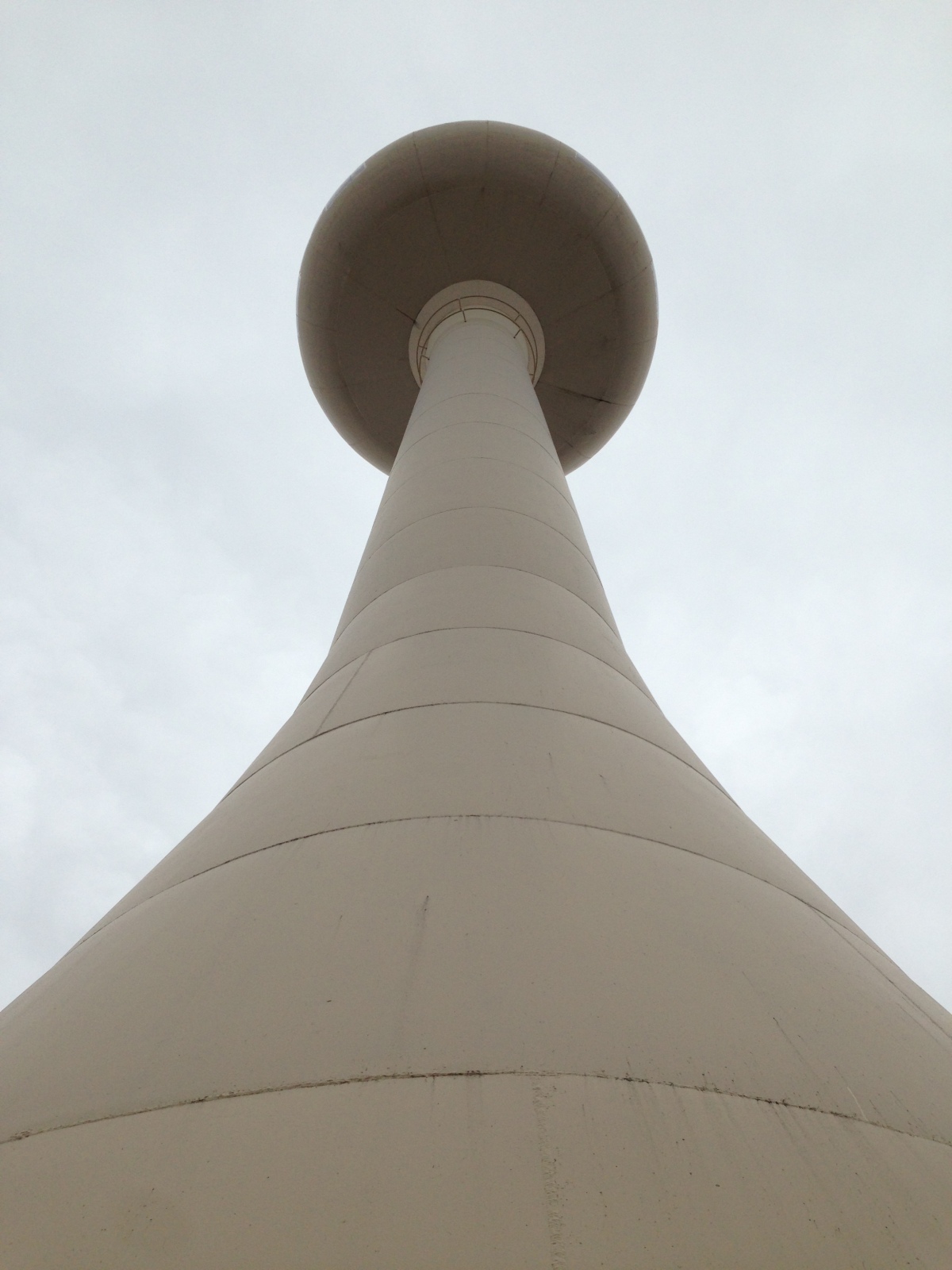It was a mild, gray, damp day, and I was home alone, doldrumic, with my three-year-old son, Zev. So I invited my dad over to hang out with us. Three generations, no plans or prospects to do anything.
I thought we could go to the zoo, or kick around a soccer ball, or go to the library, but no one (including me) seemed interested.
Instead we got in my dad’s car, and I suggested we head to the river for a hike. En route, Zev vetoed my plan with crying, and his grandpa, appeasing him, promised an adventure to ‘The Greatest Tower in the World!’.
I huffed and groaned but kept quiet. This is quintessentially my dad. Once you’re in the car, going someplace, he spontaneously suggests going somewhere else. On road trips he stops randomly at small-town post offices, or predictably, at every single historical marker. He drives slow.
I was annoyed. I had other things I wanted to be doing (even if I didn’t want to admit it). And now we were crawling along at 10 miles per hour toward the neighborhood water tower.
Bah! Why are dads so exasperating!?
We got out of the car at the Greatest Tower in the World, and I struggled to contain my irritation. This is not an activity! Going to a water tower. This is not a thing people do, it’s just … nothing!
And then, quickly, everything changed. I looked over and saw Zev standing at the base of the tower with his body pressed against the cold, painted steel, looking up at the huge ball looming above us in the clouds. He was in awe.
This is a something I pass by – and utterly ignore – a thousand times a year. It is, objectively, just a boring water tower.
But in a three-year-old’s eyes (and with his grandfather’s help), it became the greatest tower in the world.
“This … is so … AMAZING!” said Zev. (If you can’t hear him, inside your head, saying this in his signature, particular way, then ask me to do an impression next time you see me.)
We put our ears to the metal and banged our palms against it, listening to the sounds rumbling and reverberating in helixes within the giant structure. We ran around it in circles, chasing and evading each other. Reversing directions and laughing. No one was around.
When you allow a little adventure to begin, it’s amazing how it continues. Soon Zev found a fire escape to climb up and hang from. Then there was a wall of granite landscaping boulders to scamper down. Taconite pellets. A little wood with downed trees to balance on, and a dead squirrel to poke.
Soon we were just walking around, exploring, pointing things out. “Close your eyes, guys,” Zev instructed us. “I have something really AMAZING to show you!” We did. He showed us.
It was a trash compactor with a ventilation fan spinning madly, thirsty for lubricant. He was right. It was amazing.
We stopped by the barns at the university farm campus near our house. Clutches of newborn lambs huddled together, skittish and furry-legged, yanking at their mother’s udders. Zev held out a clump of dry hay for them, saying “Come ‘eeeere little lambies, come here!”.
They didn’t come. The mother approached and pinned her ears forward, hooves stamping.
We found the cow barn; it was full of new calves and expectant mothers. They were friendlier, more docile. To Zev’s delight, the calves sampled his offerings of grass and corn. But they were soon more interested in licking his clothes and slobbering on his hands. He scrunched his face and half-turned away, squealing, but stood fast.
In the end we spent about an hour doing, essentially, nothing. We started with no plan, and allowed the adventure to seep into our afternoon, unencumbered.
When I think about it, I realize this is exactly the kind of thing I most love doing with my kids. I must admit that, I too, on road trips, have a certain penchant for stopping randomly, taking photos by road signs, and even making visits to post offices.
Many an afternoon I have spent wandering around with one (or both) of my kids, directionless and drifting, until some tiny detail catches our attention and changes the course of the whole day.
Am I exasperating? Do I annoy them? Will they someday groan and sigh and glare at my foot, resting, light as a snowflake, on the gas pedal?
Not yet, but someday, maybe. For the moment, I’m going to stick to the plan, and try to get in as many aimless afternoons with them as I can.
And I’m going remember I didn’t invent this idea. It was taught to me, lovingly, sometimes exasperatingly, by my dad, on cloudy Sunday afternoons many years ago, when a water tower, a trash compactor and a cow’s slobber were all it took to make me smile and say, “Amazing.”

